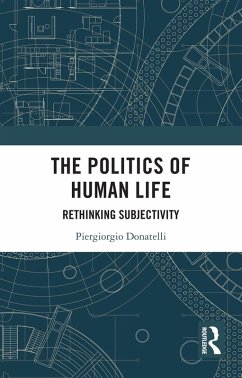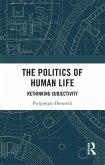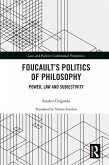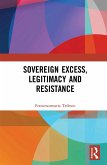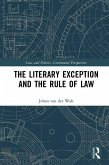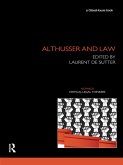Dieser Download kann aus rechtlichen Gründen nur mit Rechnungsadresse in A, B, BG, CY, CZ, D, DK, EW, E, FIN, F, GR, HR, H, IRL, I, LT, L, LR, M, NL, PL, P, R, S, SLO, SK ausgeliefert werden.
Veena Das, FBA, Krieger-Eisenhower Professor of Anthropology, Johns Hopkins University
One of the main conceptual transformations of the 21st century is a new emphasis on the notion of human life as a principle in ethics, law, and politics. Piergiorgio Donatelli, one of the most innovative thinkers in contemporary ethics, undertakes to think about this evolution and the current transformations of life forms; he presents an illuminating view of the radical change of perspective brought about by both the biologisation of social life forms and the politicisation of the living. The Politics of Human Life proposes a groundbreaking politics of life forms, together with an elucidation of the various and surprising ways today of integrating biological data in the exploration of ordinary life. Beyond the conformist divide between scientism and humanism, Piergiorgio Donatelli demonstrates how the present modifications of biological life, far from enforcing our submission to the 'laws' of life, contribute to giving human life its shape and lead us to invent new forms and norms of life, forces of transformation or resistance in a world under threat.
The present metamorphoses of life open for Piergiorgio Donatelli a space for moral reflection and new freedoms: fields which seem subjected to hard necessity, those 'general features of human nature' (as Wittgenstein calls them), such as birth, death, procreation, sexuality, are precisely the object of political and everyday struggles for the pluralism of forms of life. He boldly tells us to reclaim these domains as places for us, places for the creative exercise of subjectivity. By offering a new and realistic way to reclaim human life as a sphere of freedom, The Politics of Human Life moves towards a politics that actually places at its core the human being as a living being.
Sandra Laugier, Professor of Philosophy at the Université of Paris 1 Panthéon-Sorbonne

